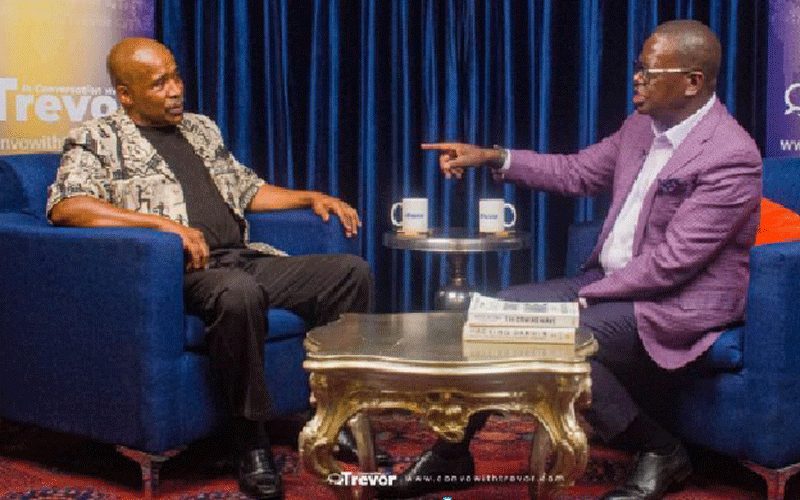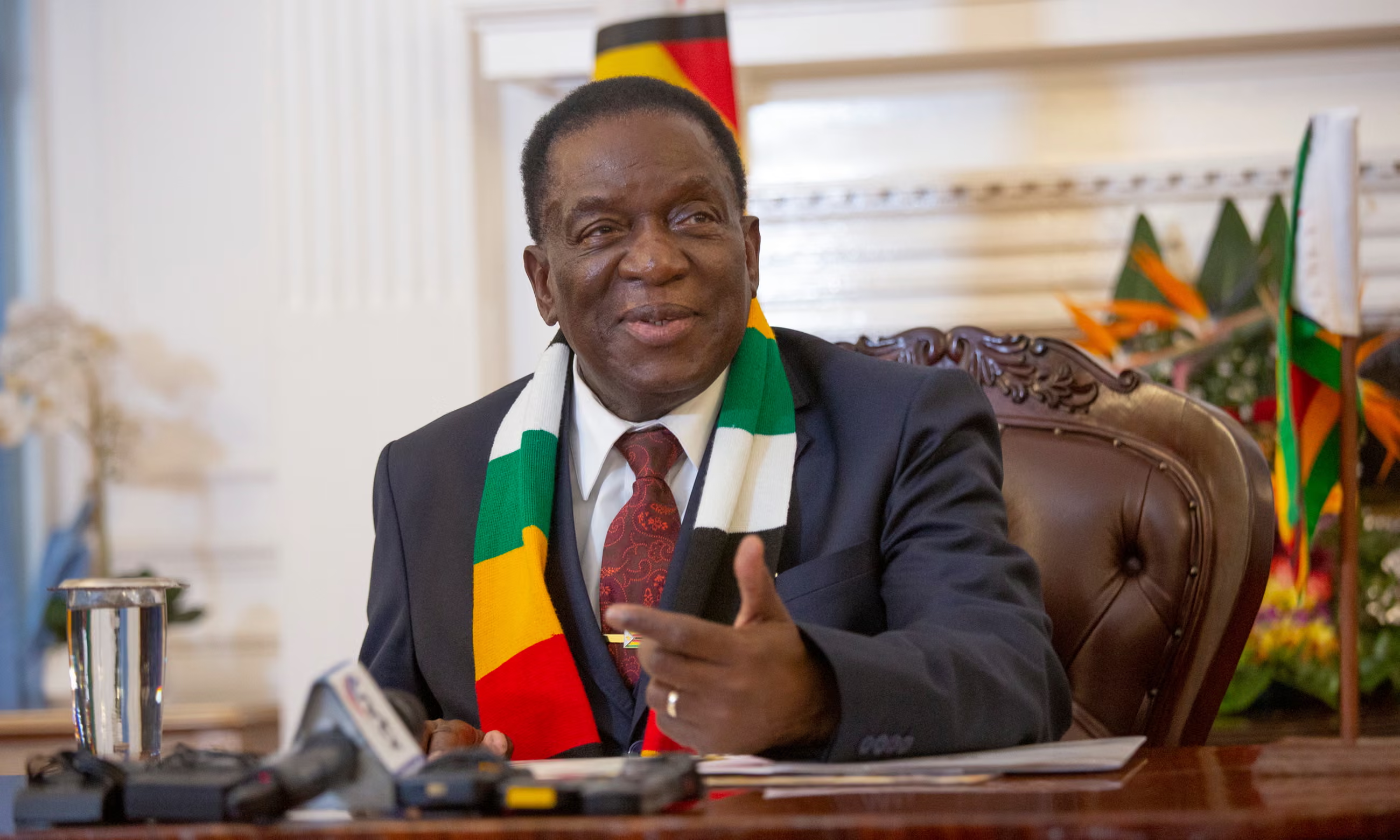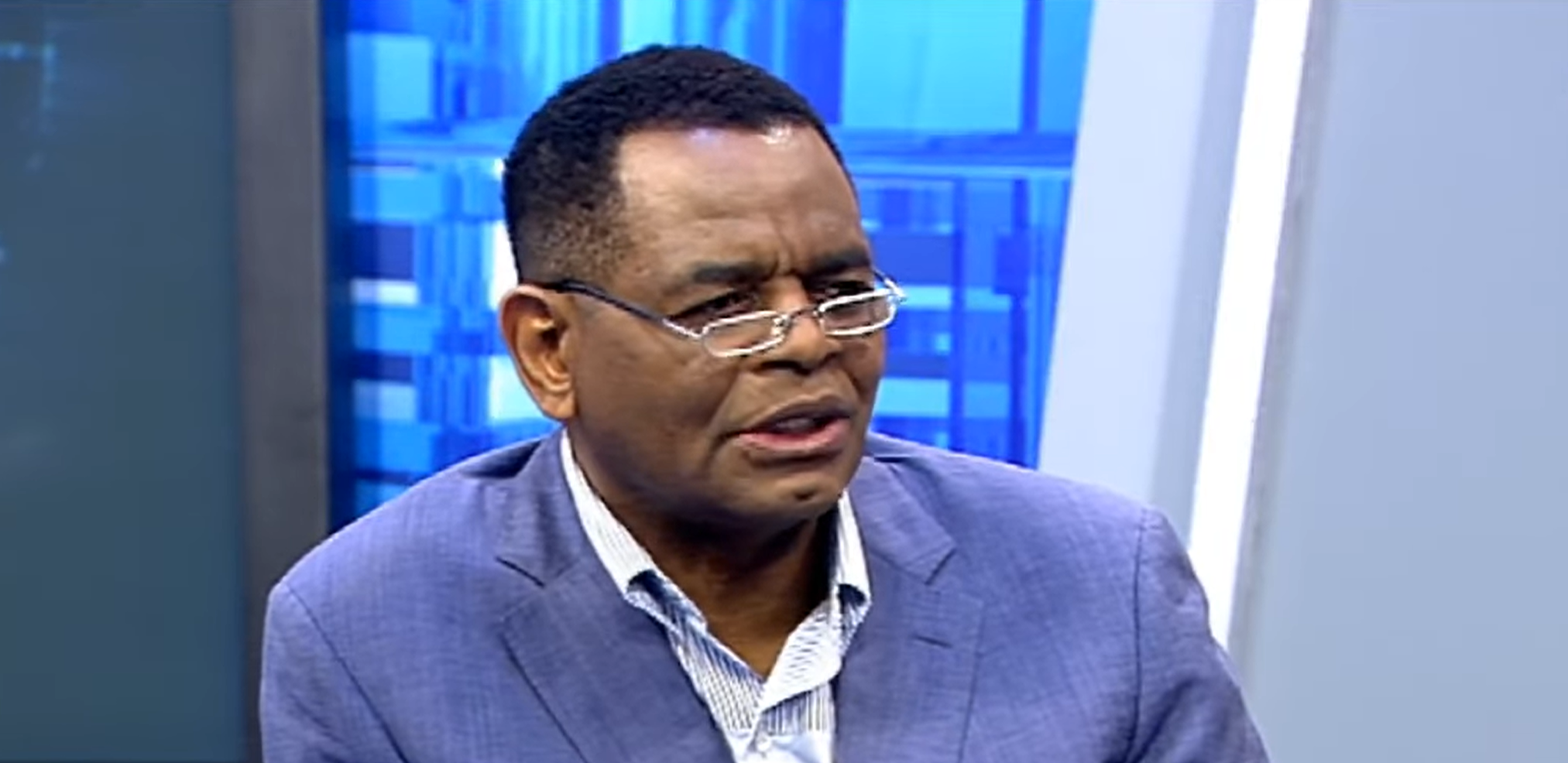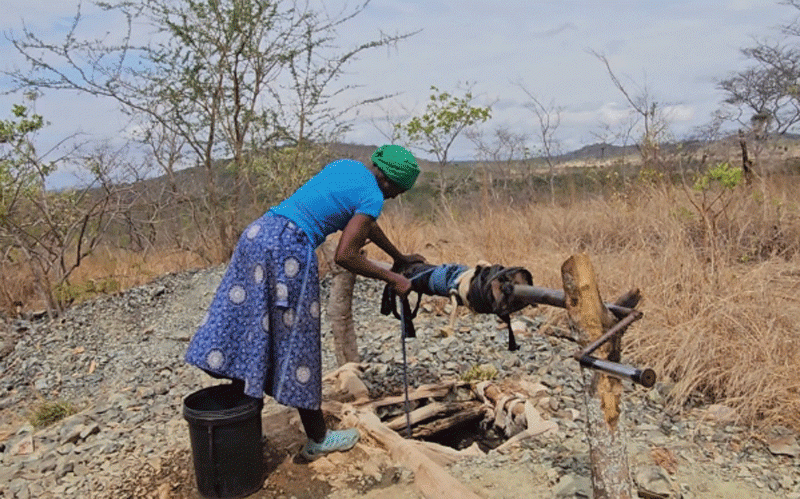
Victory Tabernacle senior pastor Bishop Trevor Manhanga says he left a high flying job as banker to pursue his calling as a preacher because he was determined to serve the Lord.
Manhanga (TM), former president of the Evangelical Fellowship of Zimbabwe, spoke about his spiritual journey, spoke about his journey when he appeared on the platform In Conversation with Trevor hosted by Alpha Media Holdings chairman Trevor Ncube (TN).
Below are excerpts from the interview.
TN: Welcome to In Conversation with Trevor, brought to you by Heart and Soul Broadcasting Services.
Today I’m in conversation with my namesake, Bishop Trevor Manhanga, the senior pastor of Victory Tabernacle. Bishop, how do I pronounce my name?
We share a wonderful name together. I think we’re going to have a good time today.
TM: Welcome. It’s my pleasure. Thank you so much for having me.
- In Conversation with Trevor: Chisamba: Let’s be proud of ourselves
- In Conversation with Trevor: ‘I tried to change Zanu PF from within’ – Margaret Dongo
- In Conversation with Trevor : How car crash changed my life
- In Conversation With Trevor: ‘We lost our humanity’
Keep Reading
TN: So you’re senior pastor of Victory Tabernacle. You started this church with 15 people in 1985. You’ve grown it to over a thousand people.
You have seven satellites all across the country.
Talk to me about the growing pains of starting Victory Tabernacle and also what would be the do’s and dont's that you would share with somebody who think I’ve been called to start to plant a church?
TM: 1985, a young guy by the time, 22 years of age, I finished Bible school here in Harare, went back to Mutare to go and plant a church with another minister by the name of Reverend Lynn Norelia.
And the church was affiliated at the time and still is with the Pentecostal Assemblies of Zimbabwe. So yeah, I was 22 years old.
Two months after, Lynn Norelia who was much older than me, resigned to go to Kwekwe.
So I was left with this fledgling baby, 15 people. We needed to pay for the building. We had taken out a loan, 40 000, the equivalent of 40 000 US dollars to pay off.
So yeah, the good thing was I was single, not married.
I love the book of Hebrews chapter 11, verse 13, it says, Moses chose to suffer affliction with the people of God rather than enjoy the pleasures of this world for a season.
You know, I left a very promising job with Barclays Bank to go to ministry.
I was at the bank at the turn of independence.
There were no black managers at the time.
And the manager at that branch where I was had put me on what was called the accelerated management training programme to get non-whites into managerial positions.
And that’s when I went and told him and said, no, God has called me.
TN: Talk to me about that. God has called me. What does it feel like? What does that mean?
TM: You know, it’s internal first and foremost. It’s not external. There’s an intrinsic small voice that’s within you saying, this is what I want you to do.
So I was faced with a lucrative future that I would have had in the banking sector.
And I always tell people, if I stayed at Barclays, the current permanent secretary would never have become the MD of Barclays. I would have beaten him to it.
And I even cried when I went and told my father when l left the bank because my father had great plans for me.
You know, parents always have plans for their children. And then I tell him I’m leaving this and he says, to do what?
I’m going to serve the Lord. Now, you know, most of us, our parents’ ideas of someone serving the Lord is poverty, struggle. And he was crying, I was crying.
But I said, no, this is what I’m feeling inside.
But the good thing was, by the time I went and spoke to my dad I had already put in my resignation.
I think if I had waited until talking to him, I would not have put the resignation.
TN: Tell me, did you wrestle with God when the call came in? Was it yes or you wrestled with him? Did it take a long time? How long did it take?
TM: It took, I would say, a few months...should I do this? You know, when I was at school, for example, I was the head boy of Morgan High School.
So, you know a school of 1 500 students. I was the head boy. So I understood the leadership and I understand the calling.
TN: Talk to me about your encounter with God when you got born again. How was that experience? Do you remember?
TM: I was in the Baptist church; it’s a wonderful church, no frivolous stuff that we see today.
That’s where I was born again at the age of 10 years. And I remember there was a missionary preacher, pastor who was there.
And one thing I remember vividly as a 10 year old every Sunday that pastor would say if there’s somebody here that wants to give their life to Christ, come to the front.
And I would want to go and I feel my legs are being held back. One day I walked to the front of the church and I was baptised.
And I’m grateful that throughout my teens I had already given my life to Christ.
Because when you go through your teenage years, there’s a lot of challenges that come your way.
And if you are not strong with a firm foundation, you won’t make it.
And so, I never got involved in all the things young people got involved in because of my background.
I tried smoking once, but the guys gave me the wrong stuff. They gave me some mbanje to smoke. It made me dizzy. That was the end of it
And I tried dabbling with drinking once. I went out and I drank. I was not used to it.
I never followed that path. Same thing with women. When I was older, when I was all the teenagers, all my friends, girls, girls, I just never...
TN: You sound like you’re perfect. Are you perfect?
TM: No! I keep telling people that the idea of sinless perfection is not biblical. We are not sinless, but we sin less.
TN: So tell me, you have grown this church, and you said when you started you had challenges about paying rent for the building.
Talk to me about the challenges of being a Christian, of being a leader, growing this church to seven satellites and more.
What have been the hurdles for you? What are the learning moments, the teaching moments that you can share with people out there?
TM: Number one, you have got to have, what would I say, a compelling vision that will drive you to, you know, know where you want to go.
One of the biggest hurdles is resources.
Many young people are sent out there trying to do something with no resources. It’s like sending somebody to war with no ammunition.
You can have a desire, you can have, but there’s a certain amount of resources that are needed.
Today, when I look at many of the young people, they don’t understand this principle of delayed gratification.
When I started off, I used to go and visit my parishioners on a bicycle. I used to ride a bicycle visiting people, to see people in hospital, wherever.









